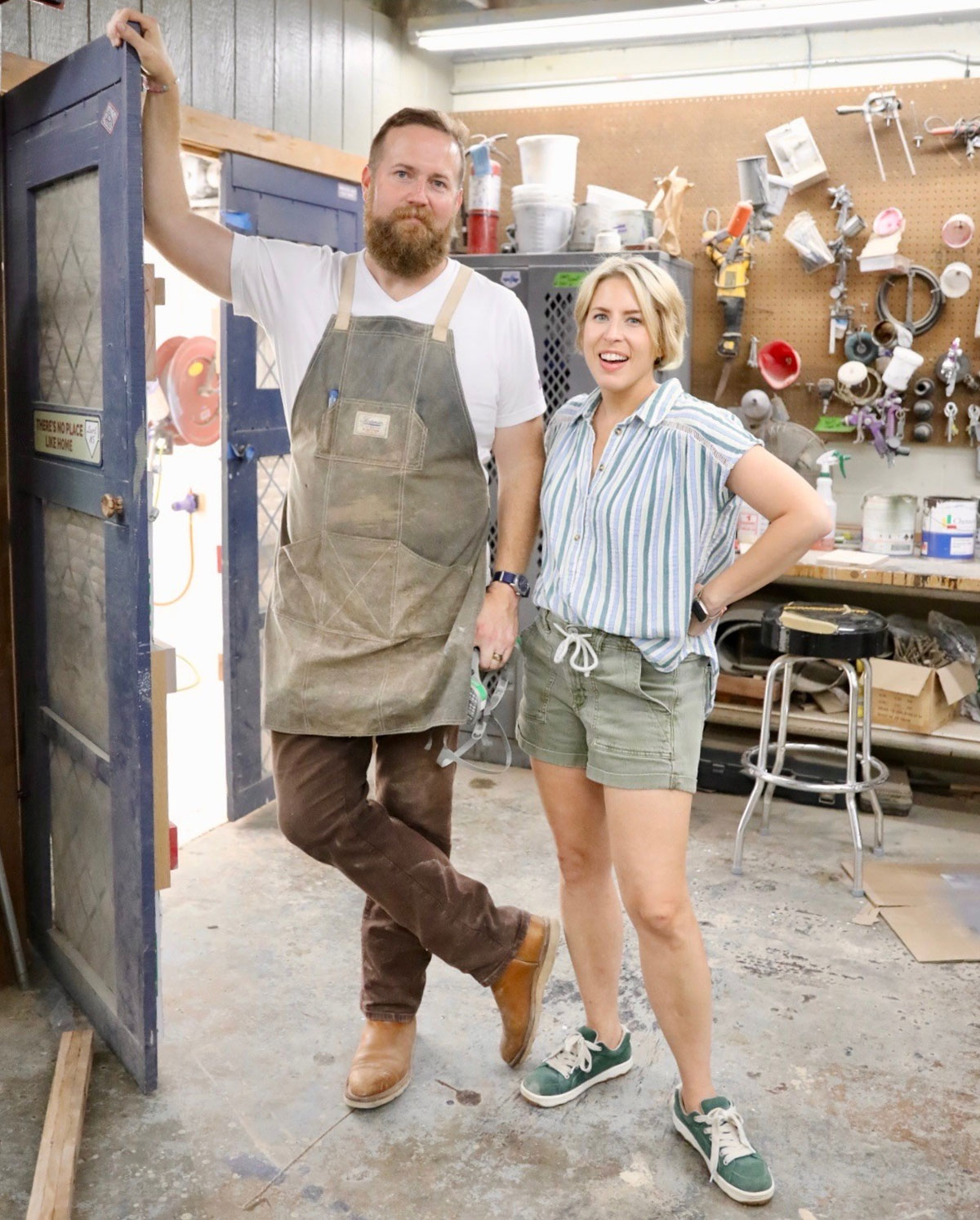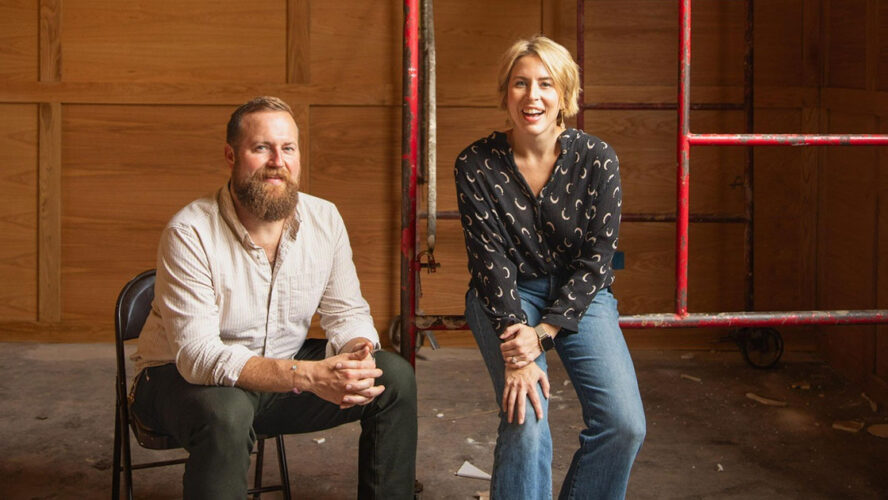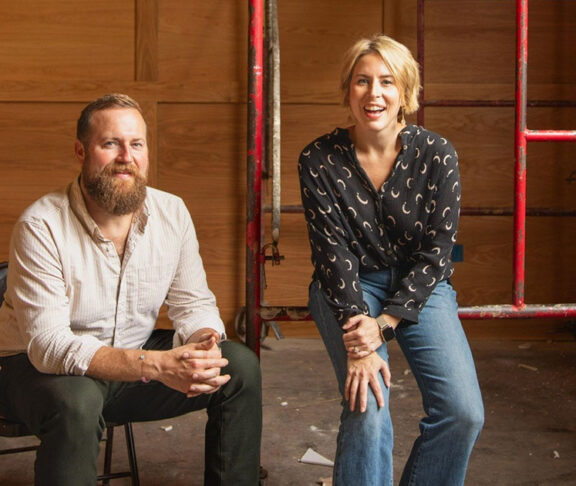Ben and Erin Napier, hosts of HGTV’s “Home Town,” discuss the pivotal role of manufacturing and trade work in helping small towns thrive.
You’ve both become icons for celebrating craftsmanship and small-town industry. How did your own backgrounds in woodworking, design, and renovation shape your views on the value of skilled trades and manufacturing?
Ben: For me, it goes back to growing up in a preacher’s family and moving through small towns — some thriving, some struggling as industry left. We saw towns in transition, where fear and uncertainty settled in. Living near the furniture capital in North Carolina, I witnessed factories closing and jobs disappearing. That shaped why we do what we do now.
Erin: I grew up with an art background and learned about the creative economy’s role in small towns, especially in Mississippi. Artists can be tastemakers and draw people in, which helps communities thrive. As a parent, I feel lucky that Laurel is still viable because the industry never left. That stability means we can bring downtown back.
Ben: We live in an industrial town, unlike truly rural areas dependent on farming. Nearby towns that lost manufacturing, like Bassett, VA, have suffered declines. When industry disappears, so do jobs and people, leading to economic and social problems.
Erin: Our renovations aim to make beautiful homes so people want to live here and keep the town alive. We also commit to American-made products because supporting domestic manufacturing is essential for small-town survival. Without that, there’s no future.
We often see you working with local makers, carpenters, and fabricators. What do you think young people today might be missing about the creative and fulfilling side of working with their hands?
Ben: Golly, so much. Growing up, the message was to go to college and get a white-collar job — something comfortable, air-conditioned, and no grunt work. But for many, those jobs weren’t fulfilling. I fell in love with woodworking when I got introduced to it, and it became more than a hobby; it became a career. Trades give you real satisfaction because you see what you’ve made and fixed at the end of the day. There’s something fulfilling that office jobs don’t always offer.

I loved college for the people skills and connections, but I get what Erin means. So many of us graduated only to find ourselves miserable in office jobs, feeling like ants in a farm — just a number. Skilled tradespeople, like plumbers and electricians, are in huge demand and make great money. Plus, there’s no AI that can fix a leaky pipe or a broken roof. It’s an essential craft, and the pride and independence that come with it are huge.
Erin, your design work brings heart and history into every project. How do you see creative roles like design, branding, and storytelling playing a bigger part in the future of American manufacturing and small business success?
Erin: Artists are storytellers; that’s our job. On “Home Town,” I help tell fuller stories about the people behind the homes we renovate. That humanizes what could just be construction. Creatives have a role in reviving American manufacturing by telling the real stories, like the people who walk from nearby neighborhoods to our factory in Laurel to sand and oil butcher blocks. I know their names. Their work matters, and creatives need to show that. But you can’t tell those stories if you don’t know they exist.
Ben: Somewhere along the way, we traded beauty for efficiency. Everything became faster, cheaper, and easier at the cost of color, craft, and jobs. Look at cars; they used to be vibrant and unique. Now it’s black, white, or gray. We used to involve creatives in everything. Art and manufacturing were once intertwined. We stripped that out to cut costs, and now we live in a colorless world. People love seeing our old, cheap, colorful cars, but they could have those things, too. We just forgot how to value creativity in everyday products.
Many towns across America are looking to revitalize their economies. How can investing in manufacturing and trades training be a catalyst for that kind of renewal?
Ben: Our old community college felt more like a university, but it also offered solid vocational training. Now they’re building a new school focused on the artful side of building — not just HVAC, but trades like plaster, stone, and wrought iron work. Those crafts are disappearing, and if no one learns them, they’re gone.
Erin: That kind of training can revive small towns. There’s been a shift back toward places like Oxford or Franklin, but not every town needs to be a tourist destination.
Ben: Right. Elkhart, Indiana — where most RVs are made — isn’t trendy, but it works. People live and thrive there.
Erin: A healthy town isn’t about how cute it looks; it’s about function. Do people work there? Shop there? Go downtown to buy school clothes or a box of screws?
Ben: That’s how trades and manufacturing spark renewal, by helping real towns stay alive and self-sustaining.
What advice would you give to a young person who might love creating or building but hasn’t yet considered a career in the trades or manufacturing?
Ben: If you’re someone who loves building or creating but haven’t considered a career in the trades or manufacturing, just try something. Shadow someone who does the kind of work you’re curious about. There’s nothing wrong with not knowing what you want to do. Honestly, we still don’t always know.
A lot of young people feel stuck because their parents worked hard to send them to college, and now they feel pressured to follow a certain path, even if it’s not right for them. But you can go to a tradesperson and say, “Hey, can I help out?” Maybe they can only pay $15 an hour, but that’s probably more than you’re making now, and definitely more than you’re making while paying for college.
Everyone’s told, “Get a degree, and then you’ll be successful.” However, some of the happiest, most capable people we know work with their hands. If you’re too proud to ask for a job, go to community college. Learn a skill. You’ll get paid to learn, and that’s a pretty good deal.

